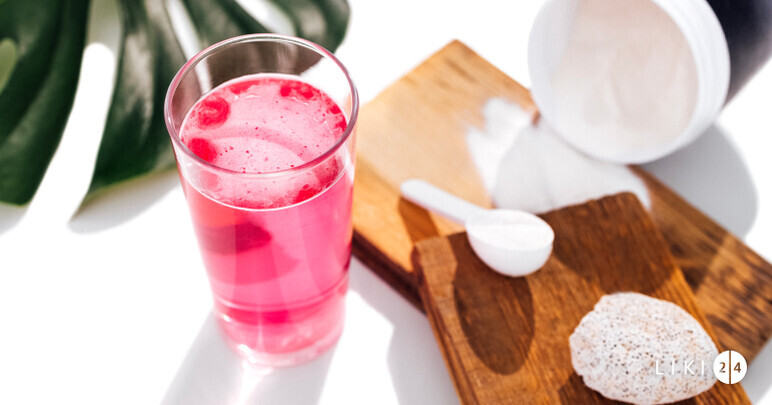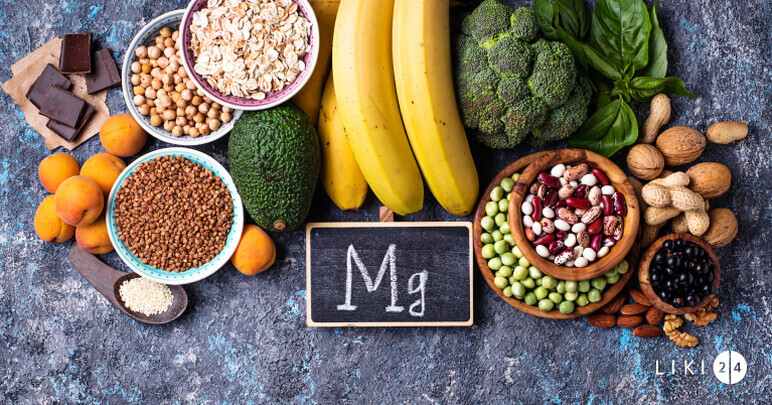What is collagen?
Definition and role of collagen in the body
Collagen is the most abundant protein in the human body, accounting for about 30% of all proteins. This structural protein is crucial for maintaining the integrity of skin, bones, muscles, tendons and ligaments. In terms of its composition, collagen is characterized by a triple helix structure consisting of the amino acids glycine, proline and hydroxyproline.
Collagen is an ancient term coined for the natural adhesive obtained by cooking animal bones. It is thought to derive from the Greek κόλλα (kólla or "glue") and -γενής (-genḗs or "producing").
The role of collagen in the body is varied and complex:
- Collagen provides firmness and elasticity to the skin, contributing to a youthful and healthy appearance.
- It is a key component of cartilage and bone, helping to maintain joint health and prevent conditions such as osteoporosis.
- It contributes to the regeneration and proper functioning of muscle tissue, especially after physical activity.
- It is essential for the structure, elasticity and proper functioning of blood vessels, ensuring efficient blood circulation.
Types of collagen and their functions
There are at least 28 different types of collagen, with varying functions and structures, but the most common and studied are types I, II, III and IV. Each type of collagen has its own specific structure and function:
- Type I collagen: It is the most abundant and is found in skin, bones, tendons and ligaments. It comprises over 90% of the organic bone matrix. It is essential for maintaining skin firmness and elasticity and is often associated with improved skin appearance.
- Type II collagen: Found mainly in cartilage, it is vital for joint health and mobility. It helps cushion and support joints, preventing joint damage.
- Type III collagen: Found in the skin, muscles and blood vessels. It often works together with type I collagen to provide structural support and elasticity.
- Type IV collagen: This type is found in the cornea, some layers of skin, hair and in the structure of the placenta.
Sources of collagen
Collagen can be endogenous (secreted naturally in the body) or exogenous (supplemented from outside). Exogenous collagen can be obtained from various food sources and supplements:
- Bone Soup: Beef, chicken or fish bone broths are rich in collagen and other beneficial nutrients. They are prepared by boiling the bones for several hours to extract collagen and minerals.
- Meat and fish: Beef, chicken and fish, especially the skin, are good sources of collagen.
- Eggs: The membrane of the eggshell contains collagen, and eating eggs regularly can help your collagen intake.
- Collagen supplements: These can be in powder, capsule or drink form and are usually extracted from animal sources such as the skin and bones of beef, chicken or fish.
Benefits of collagen for the body
Consumers frequently ask what collagen is good for the body and how they can benefit from this supplement. We will detail some of the benefits of this product in the following paragraphs.
Support for bone and joint health
Collagen supplementation can help maintain bone density and reduce joint pain by supporting the structure of cartilage and stimulating its regeneration.
Studies have shown that collagen supplementation can reduce the symptoms of osteoarthritis and relieve general joint pain. According to published research, orally administered collagen hydrolysate is absorbed through the gut and accumulates in cartilage. Ingestion of collagen hydrolysate stimulates a significant increase in extracellular matrix synthesis by chondrocytes.
Strengthening hair and nails
Collagen supplementation can help to care for hair and prevent splitting and thinning of nails, while improving their overall appearance. Collagen provides the amino acids needed to form keratin, the main protein in hair and nails. One study showed that treatment with collagen peptides promoted a 12% increase in nail growth rate and a 42% decrease in the frequency of broken nails.
Collagen can also stimulate hair growth by improving blood circulation to the scalp and supporting hair follicles. This can lead to thicker, healthier hair that is more resistant to damage.
Improve digestion
Collagen is also beneficial for digestive health, particularly due to its content of amino acids such as glycine and glutamine. These amino acids help maintain the integrity of the intestinal lining, reducing the risk of leaky gut syndrome and promoting healthy digestion.
Glycine, in particular, has anti-inflammatory properties and can help heal and repair the intestinal lining. Regular collagen consumption can help reduce gut inflammation and relieve digestive symptoms such as bloating and abdominal discomfort. A 2022 study showed that using a daily supplement of 20g of collagen can reduce bloating and improve mild digestive symptoms in healthy adult women, in the absence of any other dietary or lifestyle interventions.
Benefits of collagen for women
Supports hormone balance
What collagen is good for women - a common curiosity. First, collagen may play an important role in maintaining female hormone balance. The proteins in collagen (glycine, proline, glutamine, arginine) help support the function of the endocrine glands, which are responsible for hormone production. Collagen supplementation can help stabilize hormone levels and relieve symptoms associated with hormonal imbalances such as premenstrual syndrome (PMS).
Help during menopause
Menopause is a major transitional period in a woman's life, characterized by declining estrogen levels and other hormonal changes. These changes can lead to loss of bone density, dry skin and brittle hair. Collagen can help relieve these symptoms by supporting bone health and improving skin elasticity and moisturization.
Studies have shown that collagen supplementation can help maintain bone density in postmenopausal women, reducing the risk of osteoporosis and osteoarthritis and conferring a protective effect on joint cartilage.
Improved skin, hair and nails
Multiple studies have shown that collagen peptides help maintain skin firmness and elasticity, reducing the appearance of fine lines and wrinkles. A meta-analysis of 26 studies concluded that supplementation with hydrolyzed collagen significantly improved skin hydration and elasticity compared to the placebo group. It also helps strengthen hair and nails, preventing breakage and thinning.
Benefits of collagen for the skin
Skin moisturization and elasticity
Type I is the main collagen found in the skin, accounting for 80%-90% of skin collagen. It is produced by cells called fibroblasts, which are found predominantly in the dermis. When collagen peptides are ingested, they will move throughout the body, including to sites where fibroblasts are present. This stimulates the fibroblasts to produce more collagen, elastin and hyaluronic acid, thus rejuvenating the skin and other tissues.
Collagen is also good for the skin because it can help replenish the skin's natural protective barrier, preventing water loss and maintaining long-term hydration.
Important! Starting in adulthood, fibroblasts become less active and collagen production decreases by about 1.0%-1.5% per year. This can also be aggravated by certain lifestyle choices such as smoking, alcohol and external factors such as sun exposure
Reducing fine lines and wrinkles
By maintaining the structure and firmness of the skin, collagen can be used to delay the appearance of wrinkles and other signs of ageing, but it also needs to be combined with a healthy lifestyle, with good quality sleep and a diet rich in antioxidants.
Ageing skin has a lower collagen density, which progressively fragments. Together with senescence, the remodeling of collagen fibers leads to increased stiffness.
Accelerating skin regeneration
Collagen plays a crucial role in skin regeneration, helping to heal wounds and restore damaged tissues. Collagen supplementation can accelerate skin regeneration, thereby improving the skin's ability to repair itself.
Normal wound healing goes through inflammatory, proliferative and remodeling phases in response to tissue damage. Collagen, a key component of the extracellular matrix, plays an essential role in regulating these phases of wound healing. Deficiencies in any one of these phases lock the wound into a chronic state, usually requiring further intervention for it to heal completely.
Important! Excess sugar leads to the binding of glucose molecules to proteins in the skin, a process called glycation. Glycation leads to the weakening of collagen and elastin bonds in the skin, resulting in an aging complexion
How to choose and take collagen?
Different forms of collagen (powder, capsules, drinks)
Collagen is available in a variety of forms, including powders, capsules and drinks. Each form has its pros and cons, and choosing the right one depends on personal preference and lifestyle.
- Collagen powder: It is one of the most popular forms of collagen because it is easy to integrate into the diet. The powder can be added to drinks, smoothies or other foods. This offers flexibility and allows the dose to be adjusted according to individual needs.
- Collagen capsules: These are more convenient, easy to carry, but can be more expensive than powder and may provide a smaller amount of collagen.
- Liquid collagen: This is a great option for those who prefer quick and tasty solutions. Collagen drinks are often fortified with vitamins and minerals, providing additional health benefits. However, they may contain sugar or other added ingredients, so it's important to check the label.
Types of collagen (marine, bovine)
Most collagen supplements are derived from a variety of animal and plant sources, the most common of which are bovine, porcine and marine species.
- Marine collagen has advantages over the animal source due to its higher absorption and lower molecular weight. It also has the advantage of a negligible content of biological contaminants.
- Bovine collagen is found naturally in the cartilage, bones and skin of cattle, from which it is also extracted, and contains type 1 and type 3 collagen. One of the benefits of bovine collagen is its usefulness for those with shellfish allergies who cannot take marine collagen supplements.
Important! Whichever type of collagen you choose, it is recommended that you opt for the hydrolyzed form, where it is broken down into smaller peptides that are easier to digest and absorb
Recommended doses
The recommended daily dose of collagen may vary depending on individual needs and the type of collagen used. In general, doses of hydrolyzed collagen range from 2.5 to 15 grams per day. For specific benefits, such as improved skin or joint health, the optimal dose may be different:
- For skin: 2.5-5 grams per day are usually enough to notice improvements in skin hydration and elasticity.
- For joints: 10-15 grams a day may be needed to support joint health, reduce joint pain and improve bone density.
It is always advisable to consult a doctor or specialist before starting any new supplement, to ensure that the dose and form of collagen is right for your needs.
Combinations with other supplements and foods
Collagen can be combined with other supplements and foods to maximize benefits. For example:
- Vitamin C: It is essential for collagen synthesis in the body. Supplementing with vitamin C along with collagen can improve its effectiveness.
- Hyaluronic acid: Another important component for skin health, it can be combined with collagen to enhance skin hydration and elasticity.
- Glucosamine, chondroitin, MSM, turmeric: These compounds support joint health due to their anti-inflammatory effect and are commonly found in synergistic combinations with collagen.
We wish you the best for keeping your skin young and your joints healthy for a long time to come!


 Wellness
Wellness  Fitness
Fitness  Nutrition
Nutrition  Beauty
Beauty  Wellness
Wellness  Beauty
Beauty  844 Views
844 Views 










 Previous Article
Previous Article 







